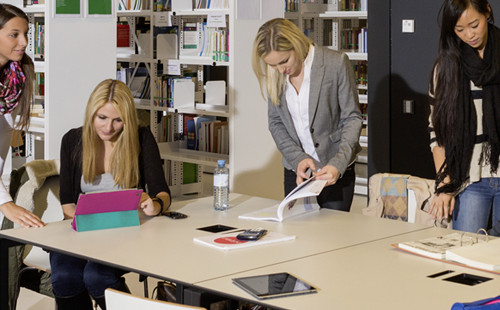Instructors
ESADE
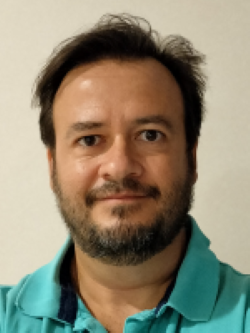
Miguel Saiz García
CaseCast supervision
Miguel Saiz is an Industrial Engineer from the University of Navarra (Tecnun) and MBA from ESADE. He is also certified as PMP®, (Project Management Professional) from the Project Management Institute, PMI® (USA). Since 2001 he has been working in the automotive sector in companies such as Grupo Antolín, Bosch, Doga and Lear Corporation. During his professional career he has led the development of products for brands such as Ford, Chrysler, Honda, GM, Audi, VW and Seat. In addition, he collaborates in the Internet Computing & Systems Optimization research group in the Universitat Oberta de Catalunya (UOC). He is founder of weOptimize (Microsoft Partner) and Teaching Fellow at Esade, Department of Operations, Innovation and Data Sciences.
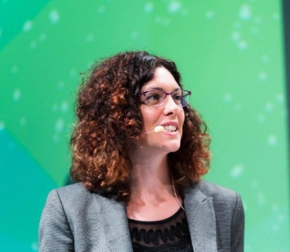
Liliana Arroyo
Online module 2: What are the SDGs? Origins and prospective
Liliana Arroyo holds a PhD in Sociology by the University of Barcelona. She is currently focused on social innovation and social impact, in particular connected to the digital revolution and the Sustainable Development Goals. Her last publication is the first report of the Observatory of SDGs and Spanish corporations, an organisation aiming at promoting the SDG agenda to leverage the role of the private sector in Spain. Liliana usually combines her research activity at the Social Innovation Institute (ESADE) with teaching and consultancy. She has been a visiting at the University of Arizona (USA)) and invited as guest lecturer at the Essex University (UK).
CBS
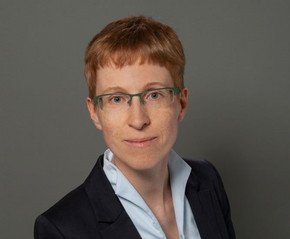
Anne-Karen Hueske
CaseCast supervision
Dr. Anne-Karen Hueske is postdoc in social entrepreneurship education at Copenhagen Business School and acts as academic co-lead for the Erasmus+ university network Aurora Alliance. Before joining CBS, she established as founding managing director PRISMA – Center for Sustainability Assessment and Policy at TU Dresden (Germany) and co-lead transdisciplinary research and consultancy project and developed interdisciplinary education offers. Her research interest centers around sustainability transformation of business and society: sustainability implementation in corporations and higher education institutions, sustainable/social intra/entrepreneurship, and responsible management education.
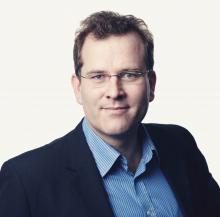
Kai Hockerts
Online module 3: From Social Problem to Business Model
Kai Hockerts is Professor in Social Entrepreneurship at CBS. Kai was co-founder and managing director of a social start-up, the Bayreuther Initiative für Wirtschaftsökologie. His business experience includes two years as an environmental strategy consultant at Ecobilan S.A., Paris (F). His primary research focus is on corporate sustainability and social entrepreneurship. Kai holds a Ph.D. in Management from the University of St. Gallen (CH). Before joining CBS he has been Adjunct Professor of Strategy at INSEAD (Fontainebleau).
WU
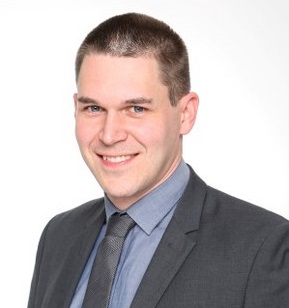
Christof Miska
CaseCast supervision/Online Module 4: Responsible Global Leadership
Christof Miska is an Associate Professor at the Institute for International Business. He earned his doctoral degree in international business from WU Vienna and is an alumnus of the Nordic Research School of International Business (NORD IB). In addition, he holds a master's degree in international business administration from WU Vienna as well as the CEMS master's in international management. The latter was earned from WU Vienna, Copenhagen Business School, and Università Commerciale Luigi Bocconi. As a scholar, he visited Bentley University (USA) and INSEAD (Singapore).
Dr. Miska's research interests focus on responsible global leadership, a contemporary approach to global leadership studies with a particular focus on ethics, corporate responsibility, and sustainable development. He serves as co-section editor for the Journal of Businss Ethics. Currently, he is involved in a research project supported by the Austrian Science Fund (FWF) on the role of purpose in organizations.
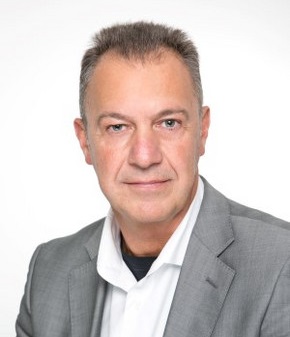
Günter Stahl
Online module 4: Responsible Global Leadership
Günter K. Stahl is Professor of International Management at the Vienna University of Economics and Business (WU Vienna). Prior to joining WU Vienna, he served for eight years as a full-time faculty member at INSEAD, the leading international business school with campuses in France, Singapore and Abu Dhabi. He was also a member of the faculty at the University of Bayreuth and a visiting professor at Duke University’s Fuqua School of Business, the D'Amore-McKim School of Business at Northeastern University, the Wharton School of the University of Pennsylvania, and Hitotsubashi University, among others. He is also an accomplished teacher who has won numerous Outstanding Teacher and Program Director awards, amon others the CEMS Course of the Year Awards 2009, 2011, 2013 and 2014 for the most highly-rated course in the CEMS program worldwide.Professor Stahl has been involved in consulting and executive teaching for a variety of industrial and professional services companies and he regularly teaches courses in MBA and executive development programs at leading business schools around the world.
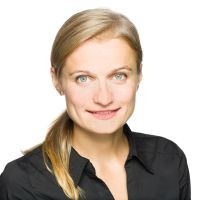
Milda Zilinskaite
Online module 4: Responsible Global Leadership
Milda Zilinskaite received her double B.A. in International Studies and Modern Languages from Wright State University, an M.A. in German from the University of Alabama, and a Ph.D. in Comparative Literature (focus areas: transatlantic studies, intellectuals in exile, émigré writers) from the University of California. Prior to joining the WU, she worked as a Visiting Professor at the Korea Development Institute School of Public Policy and Management (2011-2016), part-time Lecturer at the Karlsruhe Institute of Technology and Karlsruhe University of Applied Sciences (2012-2015), and as a Graduate Teaching Assistant for The Making of the Modern World program at the UC San Diego (2008-2011). She has also held part-time positions as a communication and leadership trainer for private companies in Germany and Spain.
Milda’s background in cultural history, ethnicity and migration has prompted her current research on highly-qualified migrants, and the impact of communication challenges and organizational context on their processes of acculturation. Milda’s other area of research focuses on present-day discourses of (ir)responsible leadership.
HSG
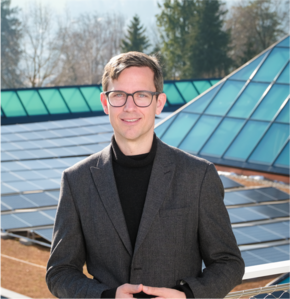
Moritz Loock
CaseCast supervision
Prof. Dr. Moritz Loock is Adjunct Professor and Permanent Lecturer of Energy and Sustainability Management at the University of St. Gallen. His research covers the influence of rising CO2 prices on business models. He is winner of the HSG Impact Award. After various management positions in leading European research projects, he is heading the HSG's Climate Solutions Task Force since 2020. Moritz Loock is co-founder of the Renewable Energy Management (REM-HSG) executive education programme. Contact
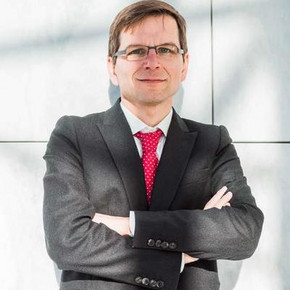
Rolf Wüstenhagen
Online module 5: From Carbon Risk to Clean Energy Business Opportunities
Rolf Wüstenhagen is Professor for Management of Renewable Energies at the University of St. Gallen. Prior to his academic career he has been working with one of the leading European energy venture capital funds. From 2008-2011 he served as a lead author of the Intergovernmental Panel on Climate Change (IPCC) special report on the role of renewables in climate change mitigation. From 2011-2015, he was a member of the advisory board of the Swiss Federal Government for their Energy Strategy 2050, which was adopted by 58% of the population in a May 2017 referendum. Dr. Wüstenhagen is the academic director of the executive education programme in Renewable Energy Management (REM-HSG).
Hitotsubashi University
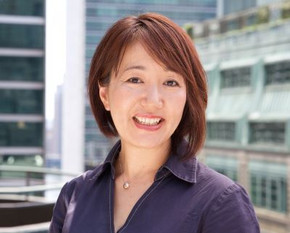
Sumie Nakaya
CaseCast supervision/Online module 6: Sustainable Cities and Communities for Social Inclusion
Sumie Nakaya is Assistant Professor at Mori Arinori Institute for Higher Education and Global Mobility at Hitotsubahi University, Tokyo, Japan. She is on special leave from the United Nations Department of Peace Operations, where she has overseen peacekeeping operations in Sudan and South Sudan, and strategic planning and crisis management, among others. She has Ph.D. in Political Science from the City University of New York (New York, NY), M.A. in Law and Diplomacy from the Fletcher School (Medford, MA), and B.A from Sophia University (Tokyo, Japan). She has published on gender and conflict, state-building, and ceasefire. Combining her academic and policy backgrounds, she also worked with the UN Development Fund for Women (subsequently transformed into UN Women) and the Conflict Prevention and Peace Forum at the Social Science Research Council. Her areas of expertise are conflict resolution, peace operations, and peacebuilding.
UPD
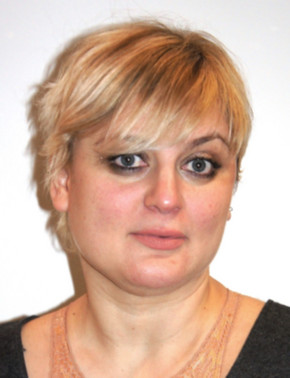
Élise Penalva-Icher
CaseCast supervision/Online module 7: Reporting and the SDGs
Élise Penalva-Icher is associate professor of sociology at the University Paris Dauphine PSL and IRISSO research Center. This research center brings together more than 100 members around the articulation and transformation of public and private regulations. In this context, her research is grounded in the sociology of economic worlds, with, for the last 15 years, Responsible Investment and Corporate Social Responsibility as privileged fieldworks. Her most recent work focuses on the transparency of remuneration. She specializes in social network analysis and recently published an article on the implementation of this trend in France in The American Sociologist.
FGV EBAPE
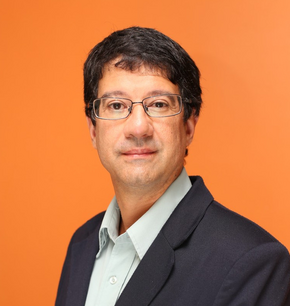
José Antonio Puppim de Oliveira
CaseCast supervision/Online module 8: Sustainability Management in Emerging Markets
José Antonio Puppim de Oliveira is faculty member at the Getulio Vargas Foundation (FGV/EAESP and FGV EBAPE). He is also visiting professor at the Federal University of Rio de Janeiro (COPPEAD-UFRJ), Fudan University (Shanghai) and Universidad Andina Simon Bolivar in Quito. He is an Associate Fellow with the United Nations University (UNU-IIGH) in Kuala Lumpur and the MIT Joint Program on Science and Policy for Global Change. He was Senior Research Fellow and Assistant Director of the Advanced Studies Sustainability Studies Institute at the UN University (UNU-IAS) in Japan (2009–2015), where he coordinated the Sustainable Urban Futures Research Program and the MSc in Environmental Governance Program.
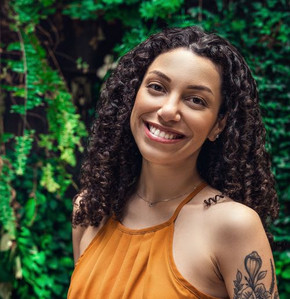
Ana Paula Santos
CaseCast supervision
Ana Paula Santos is a Ph.D. student at FGV EBAPE in the Institutions, Politics, and Government research track. Currently. She studies local governments and actions to combat climate change, especially the need for adaptation in Brazilian cities. She also works as an ESG consultant for Brazilian companies. Contact
